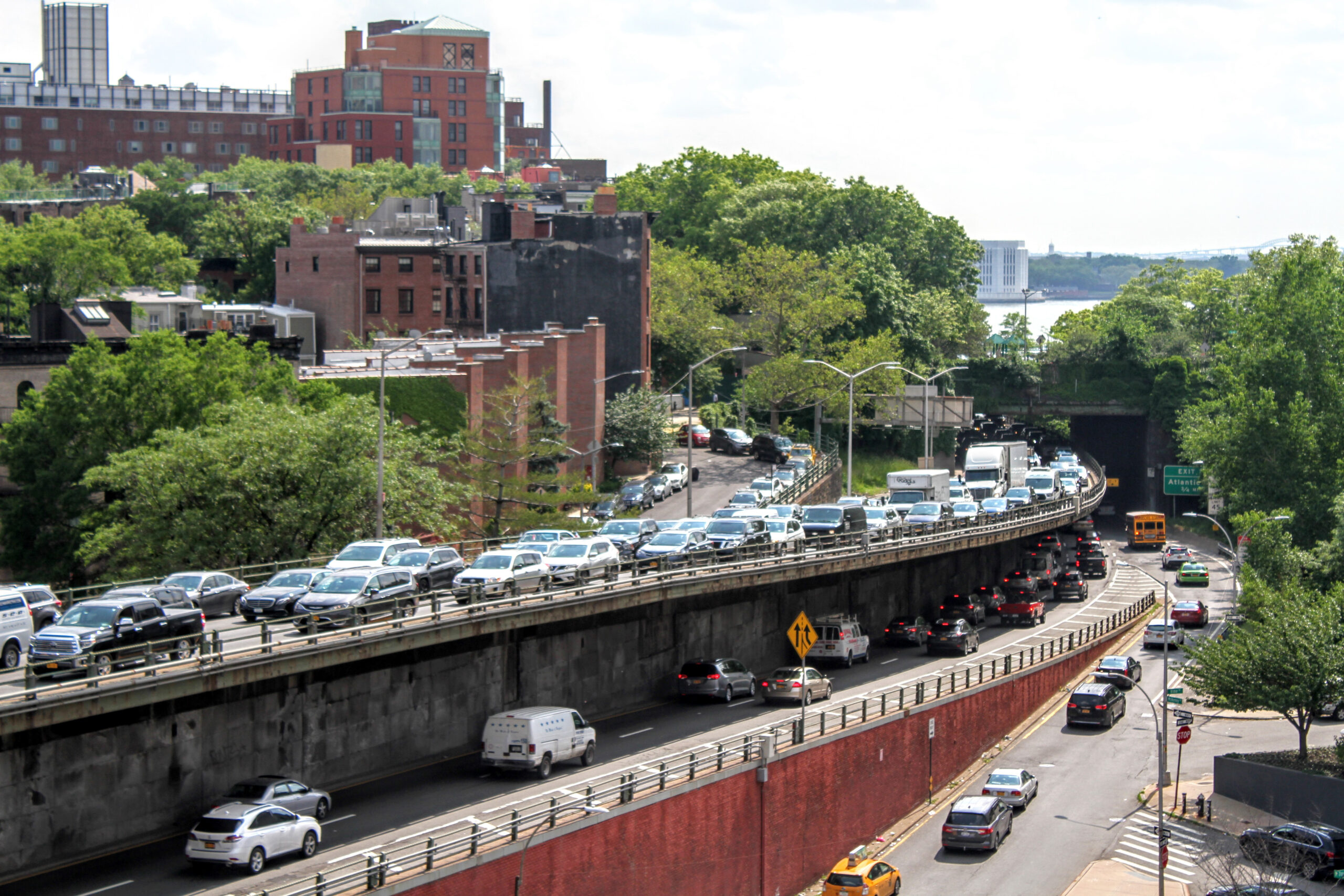
What will the Brooklyn of tomorrow look like? How will New York City fare as it moves out of a time of pandemic and into a new chapter? How will civic and creative leaders effect positive change in arenas such as housing, climate resilience, education, and more? How can design and other disciplines Pratt teaches uniquely enhance these efforts? To explore these and other facets of the future of Brooklyn and New York City, Pratt Institute is launching a major new initiative, Design Equity.
The Design Equity initiative comprises a provocative series of discussions and events dedicated to shaping a sustainable and just future in New York City (and beyond). Design Equity will also highlight the ways in which Pratt’s faculty and alumni bring their creative education and community-first approach to spark change and create a more just and sustainable tomorrow.
DESIGN EQUITY EVENTS:

Past Events
Pratt Presents Food Equity
A Design Equity Event
Co-presented by Pratt’s School of Design
Tuesday, March 19, 2024 at 6:30 PM
Higgins Hall Auditorium
61 St. James Place
Free and open to the public
Reception immediately following.
Participants:
Tony Hillery, Founder and CEO of Harlem Grown
Marcus Samuelsson, Chef, Restaurateur, Author
Amanda Huynh (moderator), Product and Food Designer, Assistant Professor, Pratt Institute
This special evening featured two culinary powerhouses: chef Marcus Samuelsson, whose celebrated restaurants include Red Rooster, Hav & Mar, Metropolis, and Marcus Bar and Grille, and Tony Hillery, founder and CEO of Harlem Grown, whose mission is to use mentorship and education to support urban farming, sustainability, and nutrition. The event was moderated by Pratt faculty member Amanda Huynh, whose product and food design practice lies at the intersection of community-building, social innovation, and sustainability. Their conversation explored the many ways in which food is foundational to culture, health, and flourishing communities, as well as how race, class, and issues of justice come to bear on food access and equity. The evening also showcased the ways design is innovating solutions to food equity challenges and how food can serve as a catalyst to change lives.
BLACK LIVE(S) & BLACK SPACE(S):
Care, Community: Housing
Presented by Pratt’s School of Architecture and
the Undergraduate Architecture department
Thursday, February 23, 6:30 PM
Higgins Hall Auditorium, Pratt’s Brooklyn campus
Free and open to the public; reservations required
Panelists:
Gary Bates, Architect, co-founder of SPACEGROUP
Rodney Leon, Architect, founder and principal of Rodney Leon Architects, Pratt Alumnus, BArch ’92
Pascale Sablan, Pascale Sablan, Architect, Activist, Associate Principal of Adjaye Associates, President of National Organization of Minority Architects Pratt Alumna, BArch ’06
Andrew Thompson, Architect, Passaic County Architect, Pratt Alumnus, BArch ’91
Malik Yoba, Actor, advocate, founder of Yoba Development
Moderators:
Stephen Slaughter, Chair, Undergraduate Architecture at Pratt
Jerrod Delaine, Developer, Visiting Professor, Pratt’s School of Architecture
The School of Architecture and the Undergraduate Architecture department at Pratt Institute would like to invite the community of Brooklyn and beyond to a conversation between African-American professionals, architects, and developers about the discriminatory housing policies that have devastated the economic and social fabric of the Black community. Our expert panel, including notable Pratt alumni and faculty, will also examine how, in light of numerous failed urban renewal and urban redevelopment strategies, Black practitioners and creative leaders can work to transform the housing arena.
Supported by Pratt Presents
This event is part of Pratt Institute’s new Design Equity initiative, a provocative series of discussions and events dedicated to shaping a sustainable and just future in New York City (and beyond). As we move out of the pandemic and into a new chapter, we’ll examine how civic and creative leaders effect positive change in arenas such as housing, climate resilience, education, and more. Design Equity also highlights the ways in which Pratt’s faculty and alumni bring their creative education and community-first approach to spark change and create a more just and sustainable tomorrow.
Research and Strategic Partnerships presents
Transportation Equity and the Future of the Brooklyn-Queens Expressway
Supported by Pratt Presents
A panel discussion featuring:
Henry Gutman, former Commissioner, Department of Transportation,
and current Chair, Brooklyn Navy Yard
Tiffany-Ann Taylor, Vice President for Transportation, the Regional Plan Association; Visiting Associate Professor; and Pratt Alumna (MS, City and Regional Planning, ’14 )
Stephen Nessen, (moderator), reporter, WNYC News
Lena Afridi, Interim Director, Pratt Center for Community Development, will provide a brief introduction
Monday, December 5, at 6:30 PM
Higgins Hall Auditorium
61 St. James Place
Free and open to the public; reservations required
The profound problems facing the deteriorating Brooklyn-Queens Expressway (BQE) are as urgent as any other challenges currently confronting the city. What conflicting concerns are preventing crucial policy development that could address this critical situation? And how does the crumbling infrastructure of the BQE encapsulate the issues inherent in creating an equitable system of transportation? Join us for a discussion exploring these and other pressing questions as we discuss the BQE, the operational and political issues surrounding decision-making about the city’s infrastructure, and how these decisions can have dramatically different racial and socio-economic impacts.
